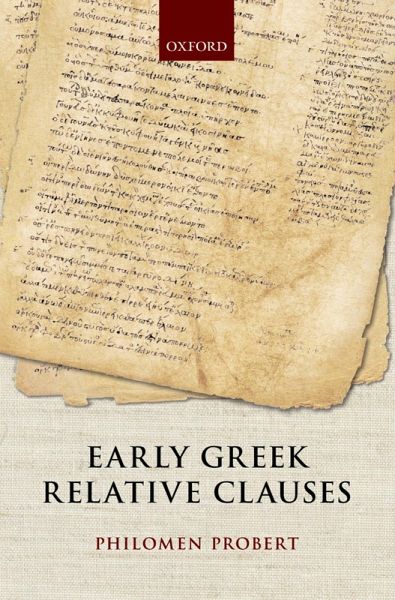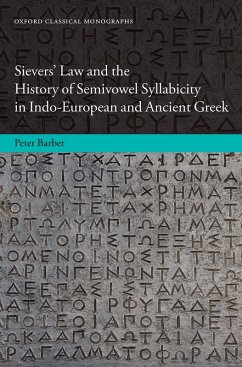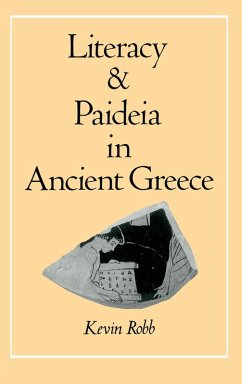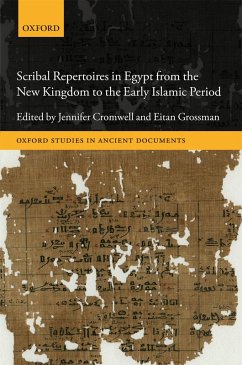
Early Greek Relative Clauses (eBook, PDF)

PAYBACK Punkte
23 °P sammeln!
Early Greek Relative Clauses contributes to an old debate currently enjoying a revival: should we expect languages spoken a few thousand years ago, such as Proto-Indo-European, to be less well-equipped than modern languages when it comes to subordinate clauses? Early Greek relative clauses provide a test case for this problem. Early Greek uses several kinds of relative clause, but all these are usually thought to come from one, or at most two, prehistoric types. In a new look at the evidence, this book finds that a rich variety of relative clause types has been in place for a considerable time...
Early Greek Relative Clauses contributes to an old debate currently enjoying a revival: should we expect languages spoken a few thousand years ago, such as Proto-Indo-European, to be less well-equipped than modern languages when it comes to subordinate clauses? Early Greek relative clauses provide a test case for this problem. Early Greek uses several kinds of relative clause, but all these are usually thought to come from one, or at most two, prehistoric types. In a new look at the evidence, this book finds that a rich variety of relative clause types has been in place for a considerable time. The reconstruction of prehistoric linguistic stages requires detailed work on the individual languages descending from them. A substantial part of the book is therefore devoted to a new look at the relative clause systems found in a wide variety of early Greek texts. It emerges that the same basic system is in use across all these texts. Different kinds of relative clause predominate in different kinds of text, however, because relative clause syntax and semantics interact with the needs of different kinds of text. Considering material as diverse as the Homeric poems, laws inscribed in stone on the island of Crete, and the philosophical prose of Heraclitus, the discussion remains clear and straightforward as Probert considers the uses and histories of different relative clause types.
Dieser Download kann aus rechtlichen Gründen nur mit Rechnungsadresse in A, B, BG, CY, CZ, D, DK, EW, E, FIN, F, GR, HR, H, IRL, I, LT, L, LR, M, NL, PL, P, R, S, SLO, SK ausgeliefert werden.













